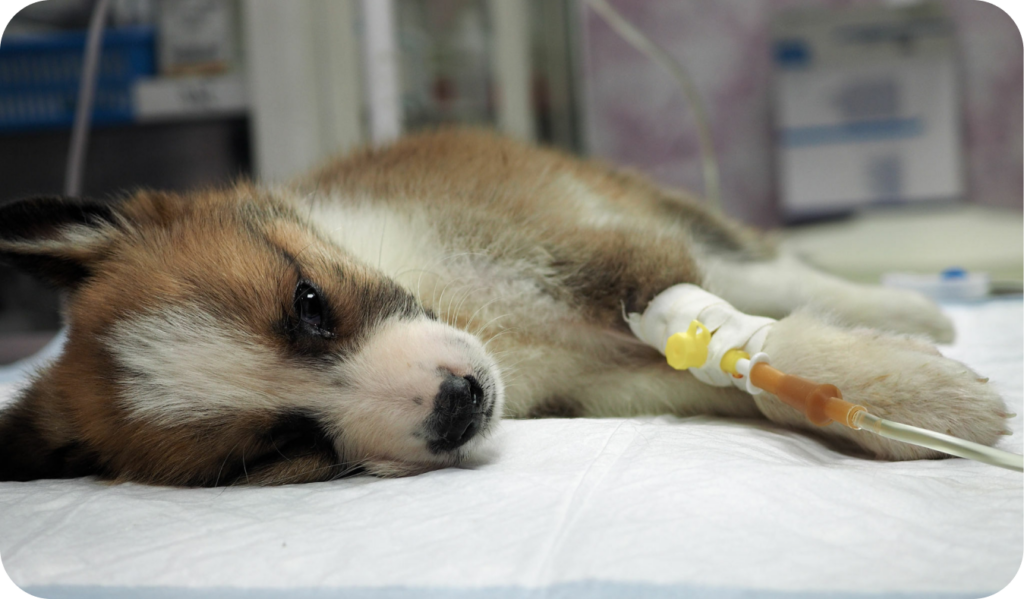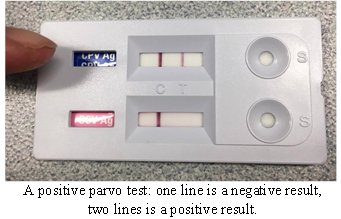Client Resources
Parvovirus

Parvovirus (commonly known as “parvo”) is a serious viral disease in dogs and is often deadly. It most commonly affects puppies but can also affect some adult dogs.
Parvo is transmitted by ingesting the virus. The virus is shed in vomit and faeces from infected animals and contaminates the environment the animal has been in. It can survive in the environment for more than 7 years in the right conditions. It can be spread by wildlife, other wandering animals, or people if it contaminates your clothes, shoes or other objects like cars, food bowls, bedding, etc.
The most common signs of infection are lethargy, vomiting and diarrhoea (with or without blood in it). Other signs include disinterest in food, fever, depression, dehydration and shock. The severity of signs can vary depending on the stage of infection.
Parvovirus attacks replicating and dividing cells. In most adult dogs the cells that are dividing the fastest are those of the intestinal lining. In puppies their whole body is dividing as they are rapidly growing, so the virus attacks their whole body. As the cells of the intestinal lining are damaged they are unable to absorb fluid and nutrients.
The incubation period (time from ingesting the virus to showing signs) is between 7-14 days, however an infected dog will start shedding the virus in faeces within 3-5 days after infection.
You need to ensure your puppy receives all three of his/her vaccines; 1st at 6-8 weeks of age, 2nd at 10-12 weeks of age, 3rd at 14-16 weeks of age. Your puppy should not socialise with other dogs or go to areas that have high numbers of dogs travelling through (e.g. the park, the beach, near the shops, down the street, etc.) until all three puppy vaccinations have been given.

Regular cleaning products WILL NOT kill Parvovirus. The recommended decontamination product is bleach at a concentration of 1/3 bleach with 2/3 water on all contact surfaces, clothing and bedding. If objects or bedding materials are unable to be properly disinfected, they should be disposed of.
If your dog is infected with Parvo, there is a 50% chance of survival and recovery if treatment is started. Survival rates are higher if aggressive treatment is started before severe signs occur. A critical part of treatment involves isolation to prevent the spread of the virus to other dogs.
For this reason, we at North Maclean Family Vet are unable to provide hospital treatment for dogs infected with parvovirus. We do not have appropriate isolation facilities in our clinic for highly transmissible and life-threatening diseases. If hospital care is undertaken at another veterinary facility, treatment may involve plasma transfusions, intravenous fluids, nutritional support, antibiotics and antivirals, anti-emetics (anti- vomiting drugs), and pain relief. The earlier your dog is treated the better the chances of survival. Even with treatment survival is not guaranteed. However, without treatment, almost all puppies will very likely die.

